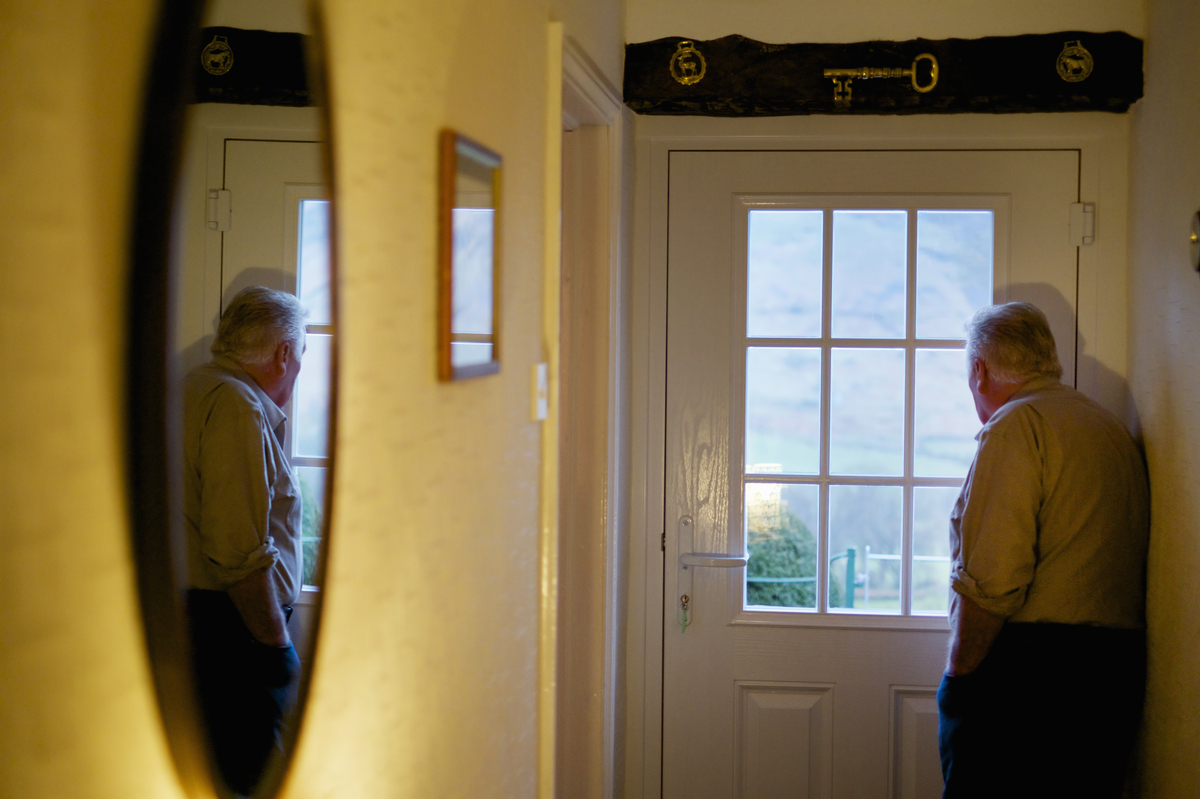
[ad_1]

A brand new advisory outlines how a nationwide technique may deal with the issue of loneliness within the United States.
Getty Images
conceal caption
toggle caption
Getty Images

A brand new advisory outlines how a nationwide technique may deal with the issue of loneliness within the United States.
Getty Images
There is an epidemic of loneliness within the United States and missing connection can improve the danger for untimely dying to ranges similar to smoking 15 cigarettes a day, in response to a brand new advisory from the U.S. Surgeon General.
The report released on Tuesday, titled “Our Epidemic of Loneliness and Isolation,” finds that even earlier than the COVID-19 pandemic, about half of U.S. adults reported experiencing measurable ranges of loneliness.
And it warns that the bodily penalties of poor connection might be devastating, together with a 29% elevated danger of coronary heart illness; a 32% elevated danger of stroke; and a 50% elevated danger of creating dementia for older adults.
“It’s hard to put a price tag, if you will, on the amount of human suffering that people are experiencing right now,” Surgeon General Dr. Vivek Murthy advised All Things Considered.
“In the last few decades, we’ve just lived through a dramatic pace of change. We move more, we change jobs more often, we are living with technology that has profoundly changed how we interact with each other and how we talk to each other.”
“And you can feel lonely even if you have a lot of people around you, because loneliness is about the quality of your connections.”

U.S. Surgeon General Dr. Vivek Murthy says the fast tempo of life has elevated the issue of loneliness.
Drew Angerer/Getty Images
conceal caption
toggle caption
Drew Angerer/Getty Images

U.S. Surgeon General Dr. Vivek Murthy says the fast tempo of life has elevated the issue of loneliness.
Drew Angerer/Getty Images
Across age teams, individuals are spending much less time with one another in particular person than 20 years in the past. The advisory reported that this was most pronounced in younger individuals aged 15-24 who had 70% much less social interplay with their associates.
Murthy mentioned that many younger individuals now use social media as a substitute for in-person relationships, and this typically meant lower-quality connections.
“We also know that for some kids, being online has been a way to find community at a time when many of them have not been able to,” he mentioned. “What we need to protect against, though, are the elements of technology, and social media in particular, that seek to maximize the amount of time that our children are spending online at the expense of their in-person interactions.”
Advisories are reserved for points deemed vital public well being challenges that “need the American people’s immediate attention,” in response to an announcement from Murthy, who has spoken overtly of his personal experiences with loneliness prior to now.
In response, the advisory outlines the framework for a brand new nationwide technique. It is predicated on six foundational pillars, that are:
- Strengthening social infrastructure, which incorporates issues like parks and libraries in addition to public packages.
- Enacting pro-connection public insurance policies at each stage of presidency, together with issues like accessible public transportation or paid household go away.
- Mobilizing the well being sector to deal with the medical wants that stem from loneliness.
- Reforming digital environments to “critically evaluate our relationship with technology.”
- Deepening our information via extra strong analysis into the problem.
- Cultivating a tradition of connection.
Murthy mentioned loneliness is not a uniquely American downside, however as a substitute a function of recent life across the globe. Yet he famous that within the U.S. participation in neighborhood organizations — from religion teams to leisure leagues — has declined in latest a long time.
“So we’re seeing more forces that take us away from one another and fewer of the forces that used to bring us together,” he mentioned.
The advisory comes on the again of quite a few research in recent times that warn of the psychological and bodily risks of loneliness.
A 2022 paper from Johns Hopkins University additionally discovered socially remoted older adults had a better likelihood of creating dementia than their friends.
“Social connections matter for our cognitive health, and the risk of social isolation is potentially modifiable for older adults,” Thomas Cudjoe, an assistant professor of medication at Johns Hopkins and a senior writer of the examine, mentioned in an announcement.
Murthy mentioned loneliness can affect individuals in quite a lot of methods, so understanding the indicators is step one to addressing it.
“Some people react to loneliness by withdrawing and getting quiet. Others react to loneliness by becoming irritable and angry, and they may lash out more,” he mentioned. “That’s why sometimes it takes a little time to really reflect on what’s happening in our life. And sometimes we need somebody else to tell us, ‘Hey, you’ve been withdrawing more’ to help us understand that we might actually be dealing with loneliness.”
[adinserter block=”4″]
[ad_2]
Source link
